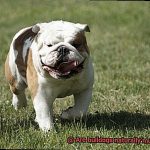Are bulldogs a restricted breed?
The bulldog – a breed that’s got it all. With their squishy faces and lovable personalities, these pups have captured the hearts of dog lovers everywhere. But here’s the burning question on everyone’s minds: Are bulldogs considered a restricted breed?
Get ready for a wild ride as we dive headfirst into the world of bulldogs and the tangled web of legal restrictions that may or may not apply to them. In this eye-opening blog post, we’ll unravel the truth behind all the controversy. Whether you’re a die-hard bulldog fan or just curious about furry regulations, this article aims to give you the lowdown in an entertaining and informative way.
So, buckle up, folks. We’re about to embark on an adventure through bulldog land, exploring why some places put restrictions on these adorable pooches and what it means for both owners and society as a whole. It’s time to dig deep into this hot topic and uncover the real deal about bulldogs and their place in the world of restricted breeds.
Understanding the Different Types of Bulldogs
Contents
- 1 Understanding the Different Types of Bulldogs
- 2 Local Regulations and Restrictions on Bulldog Breeds
- 3 Breed-Specific Legislation and Its Impact on Bulldogs
- 4 Health Considerations for Owning a Bulldog
- 5 Researching the Bulldog Breed Before Making a Decision
- 6 Responsible Ownership Tips for Ensuring Bulldog Well-Being
- 7 Exercise Requirements for Bulldogs
- 8 Grooming Needs of Bulldogs
- 9 Conclusion
Bulldogs are a popular breed known for their distinctive appearance and friendly demeanor. However, it is important to note that there are several different types of bulldogs, each with its own unique characteristics. Let’s take a closer look at some of these types.
English Bulldogs
The English Bulldog is perhaps the most well-known type of bulldog. They have a stocky build, a wrinkled face, and a pushed-in nose. Despite their sometimes intimidating appearance, English Bulldogs are actually very gentle and affectionate dogs.
French Bulldogs
French Bulldogs are smaller in size compared to English Bulldogs and have a more compact body. They have distinctively bat-like ears and a playful and outgoing personality. French Bulldogs make great companions for families and individuals alike.
American Bulldogs
American Bulldogs are larger and more muscular compared to English and French Bulldogs. They were originally bred for farm work and are known for their strength and athleticism. American Bulldogs have a strong protective instinct but can also be gentle and loyal family pets.
Olde English Bulldogge
This breed is a recreation of the original English Bulldog from the 17th century. They are larger and more athletic than the modern English Bulldog, with a longer muzzle and fewer health issues. Olde English Bulldogges are active dogs that require regular exercise.
Alapaha Blue Blood Bulldog
This relatively rare breed originated in the southern United States. They are known for their intelligence, loyalty, and protective nature. Alapaha Blue Blood Bulldogs have a strong prey drive and require an experienced owner who can provide them with proper training and socialization.
When choosing a bulldog, it is important to research thoroughly to find the type that best fits your lifestyle and preferences. Each type has its own specific needs and temperament traits.
It is also important to familiarize yourself with any local laws or regulations that may apply to bulldog ownership. Although bulldogs are not typically considered restricted breeds, some areas may have specific regulations or restrictions in place.
Lastly, it is crucial to be aware of the potential health issues that bulldogs may face, such as breathing difficulties and joint problems. Providing proper care and regular veterinary check-ups can help ensure their well-being.
By understanding the different types of bulldogs and their unique characteristics, you can make an informed decision and provide the best possible care for your furry friend.
Local Regulations and Restrictions on Bulldog Breeds
We know you adore your squish-faced, bat-eared buddies, but it’s important to stay informed about local regulations and restrictions that may affect your furry friend. Let’s dive into what you need to know to keep your French Bulldog happy and out of any legal trouble.
Breed-Specific Legislation (BSL): The Good, the Bad, and the Ugly
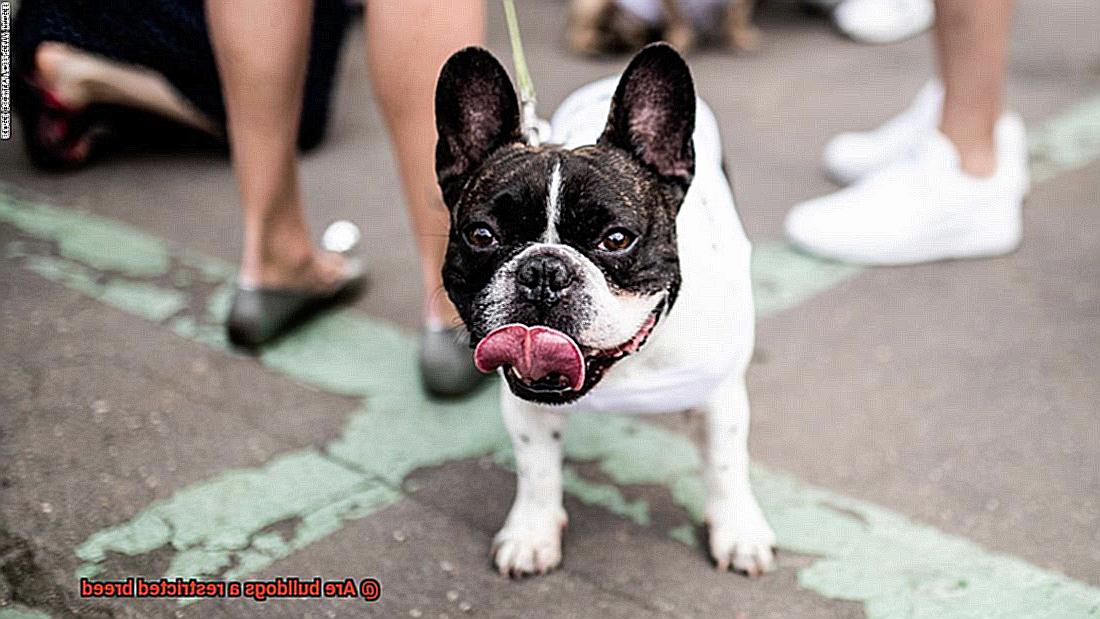
Unfortunately, some cities and municipalities have breed-specific legislation (BSL) that targets certain breeds, including bulldogs. This can range from mild restrictions like mandatory spaying/neutering to more extreme measures like outright bans on owning the breed. It’s crucial to research your local laws to understand how they may impact you and your Frenchie.
Special License or Permit: Is It a Must-Have?
In some areas, bulldog owners may be required to obtain a special license or permit. These often come with specific criteria like responsible ownership, suitable housing, liability insurance coverage, and maybe even doing a cartwheel (just kidding about the cartwheel.). Make sure you’re aware of any additional requirements in your area.
Other Regulations to Keep in Mind
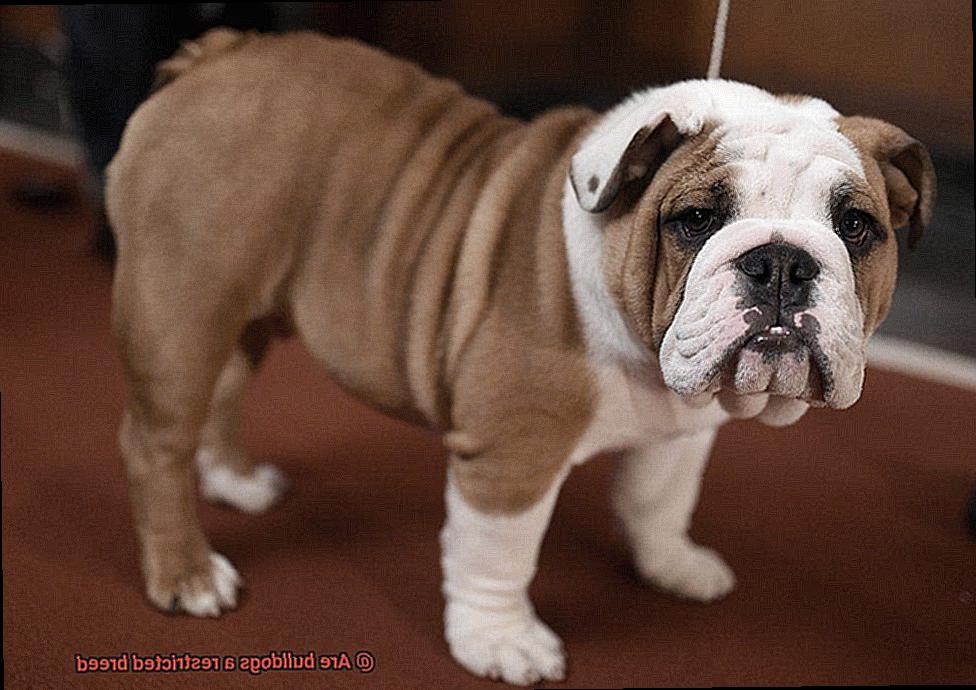
BSL isn’t the only thing bulldog owners should be aware of. Leash laws, noise ordinances, and zoning restrictions can all affect where you can walk your Frenchie or where they can live comfortably. So be sure to familiarize yourself with these local regulations too.
Stay Informed and Connected
To navigate the ever-changing landscape of local regulations, consider joining local breed-specific clubs or organizations. They can provide valuable guidance and support, keeping you in the loop about any updates or changes to the laws. Plus, they’re great for meeting fellow Frenchie fanatics.
Advocate for Your Breed
As responsible dog owners, it’s important to advocate for our lovable bulldogs and work towards dispelling stereotypes and misconceptions surrounding the breed. By promoting responsible ownership and positive interactions, we can help create a more inclusive and fair approach to regulations.
Breed-Specific Legislation and Its Impact on Bulldogs
When it comes to our beloved French Bulldogs, we want nothing but the best for them. But did you know that there are laws out there that can impact our furry friends? That’s right – breed-specific legislation (BSL) can have a significant impact on bulldogs, including French Bulldogs. In this blog post, we’ll explore the ins and outs of BSL and its effects on our adorable Frenchies.
What is Breed-Specific Legislation?
BSL refers to laws and regulations that target specific dog breeds, labeling them as dangerous or aggressive. These laws can impose various restrictions on ownership, such as mandatory muzzling, higher insurance premiums, and even bans in certain areas. The goal of BSL is to reduce dog-related incidents and ensure public safety. However, the effectiveness of these laws is a hotly debated topic.
The Bulldog Family: English, French, and American
When we talk about bulldogs, we’re not just referring to one breed. The term “bulldog” encompasses several different breeds, including the English Bulldog, French Bulldog, and American Bulldog. Each breed has its own unique characteristics and temperament.
English Bulldogs are known for their gentle and affectionate nature. They make great family pets and are often seen as docile companions. French Bulldogs, on the other hand, are playful and sociable. They love being the center of attention and are known for their clownish antics. American Bulldogs are intelligent and protective – they make excellent guard dogs but are also loyal family pets.
The Impact of BSL on Bulldogs
Although bulldogs, including French Bulldogs, are not typically classified as restricted breeds under BSL, these laws can still have a significant impact on them. Here are some ways BSL can affect our furry friends:
- Stigma and Misconceptions: BSL can perpetuate stereotypes and misconceptions about bulldogs, leading to discrimination based on their breed. It’s important for owners to advocate for responsible ownership and educate others about the true nature of bulldogs.
- Housing and Insurance Challenges: BSL can make it difficult for responsible bulldog owners to find housing or obtain insurance coverage for their pets. Some landlords or insurance companies may have restrictions or higher premiums for certain breeds, including bulldogs.
- Lack of Focus on Responsible Ownership: BSL fails to address the root causes of dog-related incidents, which are often related to irresponsible ownership practices, lack of socialization, and inadequate training. Instead of targeting specific breeds, a more effective approach would be to promote responsible ownership education and enforce leash laws and licensing requirements.
Health Considerations for Owning a Bulldog
French Bulldogs, listen up. As adorable and lovable as you are, there are some important health considerations that you and your potential owners should be aware of. Let’s dive into these concerns so you can live your best, healthiest lives.
- Respiratory Issues: Bulldogs, including French Bulldogs, have unique facial structures with short snouts and flat faces. While these features make you undeniably cute, they also make you prone to respiratory difficulties. In hot and humid weather, your breathing can become even more challenging. This can lead to conditions like brachycephalic airway syndrome and heat stroke. So make sure your owners keep you cool and comfortable during those scorching summer days.
- Weight Management: Bulldogs have a tendency to pack on the pounds, which can worsen their breathing problems. It’s vital for your health that your owners monitor your diet and exercise to ensure you maintain a healthy weight. A balanced diet and regular exercise will keep you in tip-top shape.
- Skin Sensitivities: Bulldogs often face skin problems like allergies, rashes, and infections. Regular grooming sessions and proper hygiene practices are essential to prevent these irritating conditions. Keep that coat clean and shiny.
- Eye Troubles: Cherry eye (prolapse of the third eyelid) and dry eye are common issues among bulldogs. Regular eye examinations by a veterinarian are crucial to catch and treat any eye problems early on. Your eyes are the windows to your soul, so let’s keep them healthy.
- Joint Problems: Bulldogs are prone to joint issues such as hip dysplasia and luxating patella. Owners should provide appropriate exercise while avoiding activities that may strain your joints. Let’s keep those joints happy and wagging.
- Reproduction Challenges: Bulldogs often require assisted reproduction techniques due to difficulties with natural breeding and birthing. Artificial insemination and cesarean section deliveries are commonly performed in bulldogs to ensure safe and successful reproduction. So don’t worry, future bulldog parents, there are ways to bring more adorable pups into the world.
- Genetic Disorders: Bulldogs have a higher risk of certain genetic disorders, including congenital heart disease, spinal abnormalities, and various types of cancer. Regular veterinary check-ups and genetic testing can help identify and manage these conditions, ensuring you live a long and healthy life.
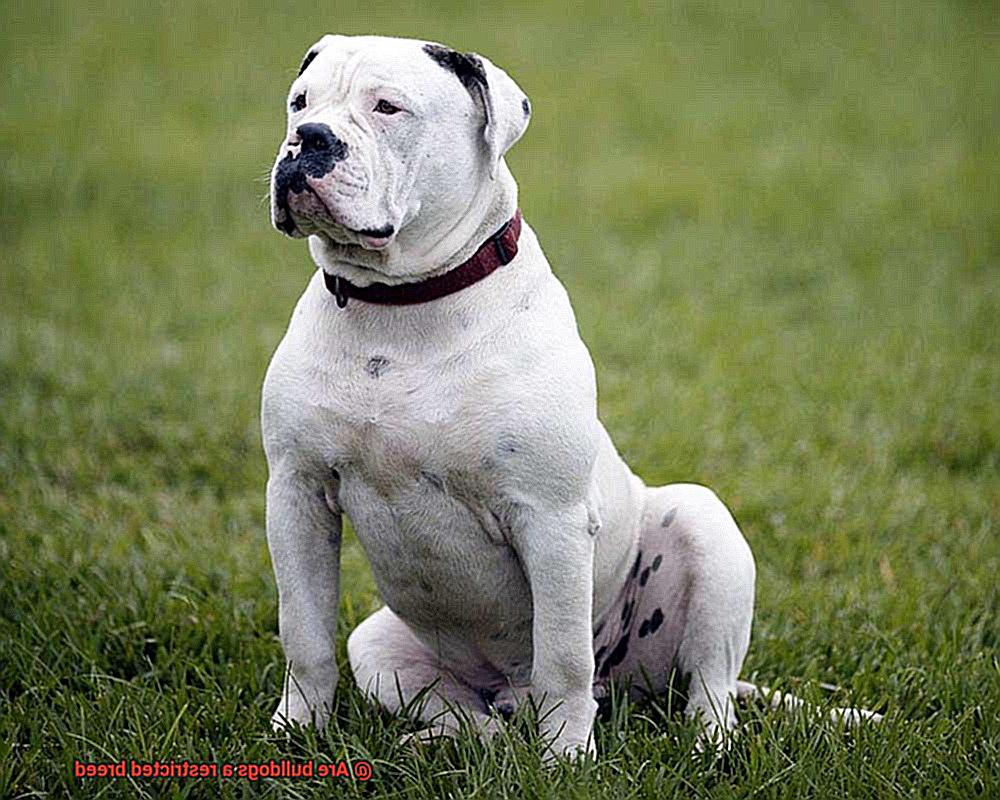
Researching the Bulldog Breed Before Making a Decision
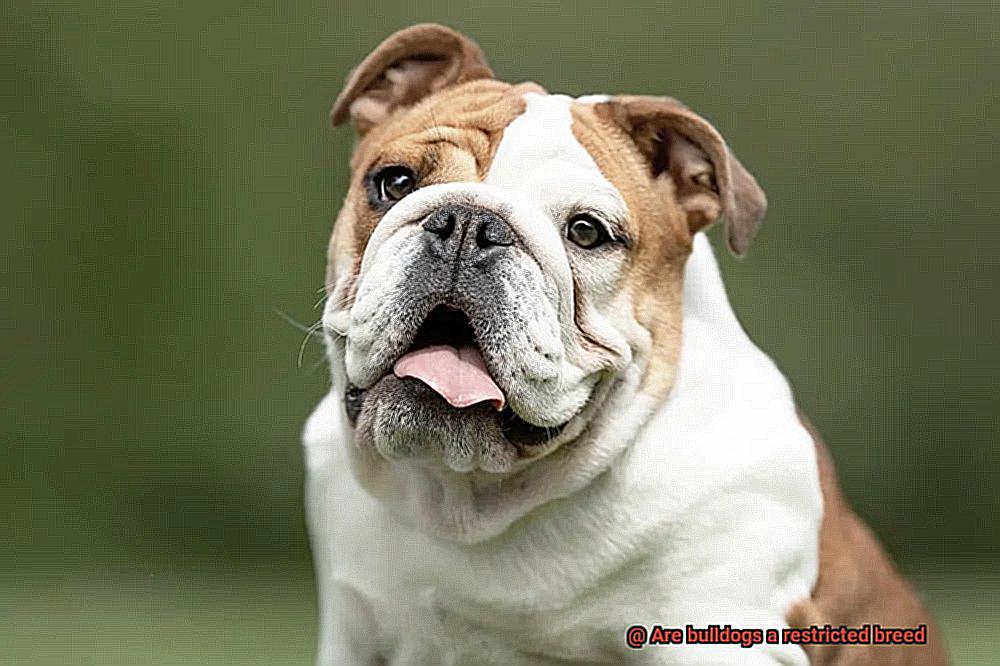
Before bringing a bulldog into your family, it is crucial to research the breed thoroughly. While bulldogs are popular and beloved pets, they have specific needs and characteristics that potential owners should be aware of. By understanding their history, unique traits, health concerns, exercise requirements, grooming needs, and temperament, you can make an informed decision and provide the best care for your new furry friend.
Origin and History:
Bulldogs have a fascinating history rooted in bull-baiting. They were originally bred for their strength and tenacity in fighting bulls. Over time, bulldogs transformed into companion animals with distinctive physical characteristics such as their muscular build, broad heads, and wrinkled faces. This history has also influenced their temperament, making them loyal and protective companions.
Types of Bulldogs:
There are different types of bulldogs, including English Bulldogs, French Bulldogs, and American Bulldogs. Each type has its own distinct features and personality traits. English Bulldogs are known for their stocky build and gentle nature. French Bulldogs are smaller in size with bat-like ears and a playful personality. American Bulldogs are larger and more muscular, often used as working dogs or family guardians.
Specific Needs and Health Concerns:
Bulldogs are prone to certain health issues that potential owners should be aware of. The most common health problems include respiratory issues, skin allergies, and joint problems. Their short muzzles can lead to breathing difficulties, especially in hot weather or during exercise. Regular veterinary check-ups and a balanced diet can help manage these concerns.
Exercise Requirements:
Despite their appearance of laziness or inactivity, bulldogs still require regular physical exercise to maintain a healthy weight and overall well-being. Daily walks and interactive playtime are recommended to keep them mentally stimulated and physically fit.
Grooming Needs:
Bulldogs have specific grooming needs that owners must address. Their facial wrinkles require regular cleaning to prevent infections, and their short coats may shed moderately. Brushing their coat regularly and using appropriate grooming tools can help keep their skin and coat healthy.
Temperament and Personality:
Bulldogs are known for their loyalty, affection, and friendliness towards family members. However, they can also be stubborn at times, requiring consistent training and positive reinforcement. Early socialization is essential to ensure they interact well with other animals and people.
Debunking Misconceptions:
There are misconceptions and stereotypes associated with bulldogs, such as aggression or danger. However, with proper training, socialization, and responsible ownership, bulldogs can be friendly and well-behaved companions.
Resources for Further Research:
There are many resources available for further research on bulldogs. Breed-specific websites, books, and reputable breeders or rescue organizations can provide valuable information on the breed’s characteristics, health concerns, training tips, and more.
Responsible Ownership Tips for Ensuring Bulldog Well-Being
In this blog post, I will share valuable tips for responsible ownership that will help keep your French Bulldog happy and healthy.
Provide Proper Nutrition:
French Bulldogs have specific dietary needs, so it’s crucial to feed them a balanced and high-quality diet. Consult with your veterinarian to determine the best food options for your Frenchie based on their age, size, and activity level. Avoid overfeeding, as obesity can lead to various health issues.
Regular Exercise:
Despite their small size, French Bulldogs need regular exercise to maintain a healthy weight and overall well-being. Daily walks or playtime in a secure and safe environment are ideal. However, be mindful of their limitations due to their short noses, which can make breathing more difficult during intense exercise or in hot weather conditions.
Grooming Care:
French Bulldogs have a short coat that requires regular brushing to remove loose hair and prevent matting. Their adorable facial wrinkles need extra attention as they can accumulate moisture and debris, leading to skin infections. Clean the wrinkles with a damp cloth and dry them thoroughly to maintain their hygiene.
Dental Hygiene:
French Bulldogs are prone to dental problems like gum disease and tooth decay. Establish a regular dental care routine by brushing your Frenchie’s teeth with dog-friendly toothpaste and providing appropriate chew toys that promote dental health.
Regular Veterinary Check-ups:
French Bulldogs are predisposed to certain health conditions such as respiratory issues and allergies. Schedule regular visits to the veterinarian for check-ups, vaccinations, and preventive care. Early detection of any potential health concerns can lead to better treatment outcomes.
Exercise Requirements for Bulldogs
French Bulldogs, also known as Frenchies, are beloved for their adorable looks and friendly personalities. While they may be small in size, their exercise needs should not be overlooked. In this blog post, we will dive into the exercise requirements for Bulldogs and provide you with expert advice on how to keep your Frenchie fit and fabulous.
Understanding Bulldog Exercise Needs:
Contrary to popular belief, Bulldogs are not couch potatoes. While they may not require as much exercise as high-energy breeds like Border Collies or Australian Shepherds, they still need daily physical activity to maintain their health and prevent obesity.
Factors Affecting Exercise Needs:
The amount of exercise needed for Bulldogs can vary based on several factors:
- Age: Puppies and younger Bulldogs tend to have more energy and may require more exercise than older ones. Gradually increase their exercise as they grow to avoid overexertion.
- Weight: Bulldogs are prone to weight gain, which can lead to various health issues. Regular exercise helps them maintain a healthy weight and keeps their muscles strong.
- Overall Health: Consider any pre-existing health conditions your Bulldog may have. Consult with your veterinarian to determine the appropriate exercise routine based on their individual needs.
Recommended Exercises for Bulldogs:
- Short Walks: Bulldogs benefit from daily walks to keep them active and mentally stimulated. Aim for two or three 15-20 minute walks per day.
- Play Sessions: Engage in interactive play sessions with your Frenchie using toys like balls or ropes. This not only provides physical exercise but also strengthens the bond between you and your furry friend.
- Swimming: Bulldogs are not natural swimmers, but many enjoy splashing in shallow water. Supervised swimming sessions can be a low-impact exercise option that puts less strain on their joints while providing a good workout.
- Mental Stimulation: Bulldogs are intelligent dogs who thrive on mental stimulation. Incorporate puzzle toys or interactive games into their routine to keep their minds sharp and prevent boredom.
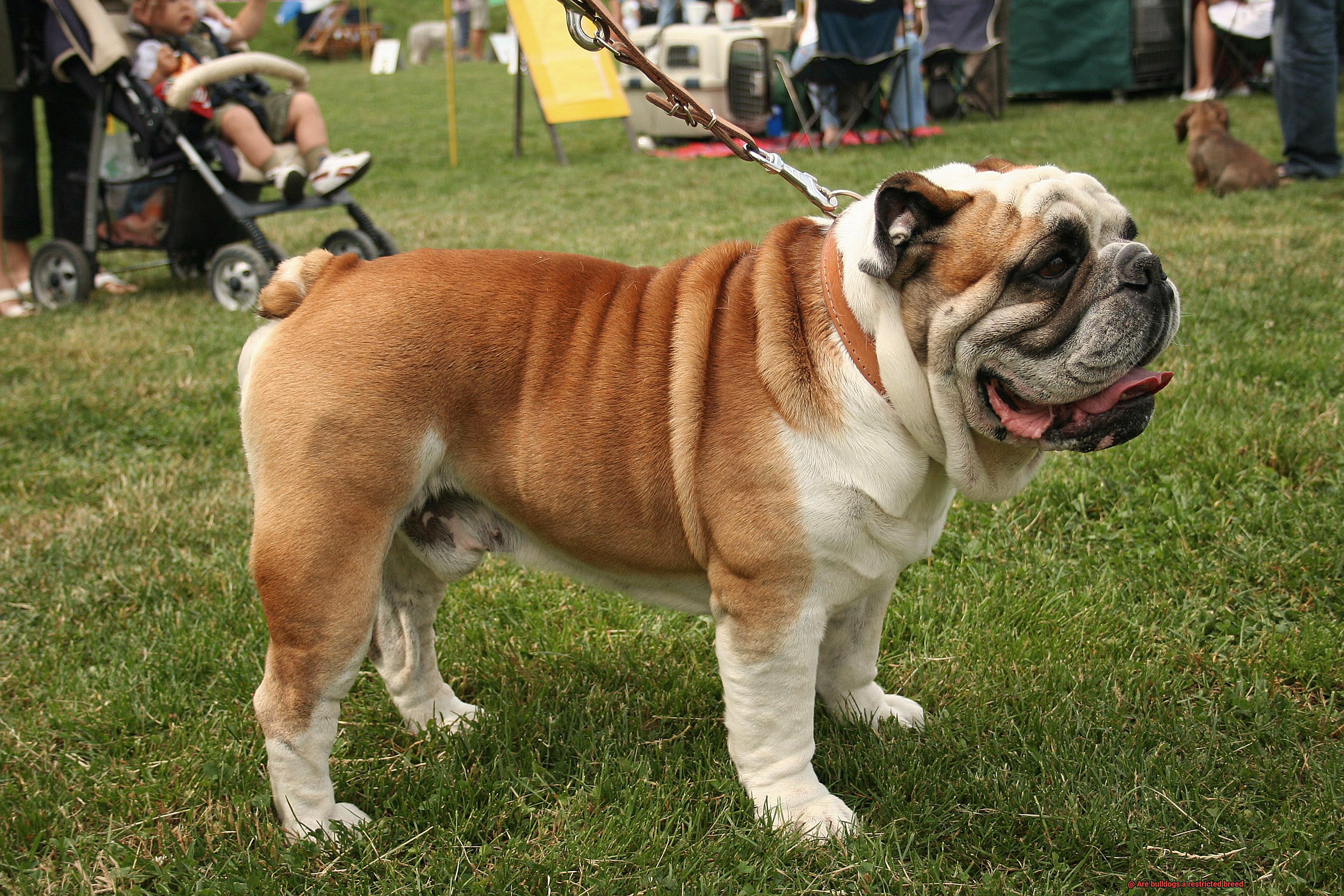
Exercise Tips for Bulldogs:
- Avoid Overexertion: Bulldogs are brachycephalic dogs, meaning they have a shortened muzzle that can make breathing challenging. Be mindful of their limitations and avoid excessive exercise, especially in hot or humid weather.
- Provide Breaks and Rest Periods: Bulldogs may need frequent breaks during exercise to catch their breath and cool down. Offer them plenty of water and shade.
- Tailor Exercise to Individual Needs: Every Bulldog is unique, so adjust their exercise routine based on their age, weight, and overall health. Consult with your veterinarian for personalized advice.
Grooming Needs of Bulldogs
Those adorable wrinkly faces and stocky bodies make them a fan favorite. But did you know that Bulldogs have specific grooming needs that are crucial to their health and well-being? Let’s dive into the world of Bulldog grooming and make sure your furry friend stays looking and feeling fabulous.
- Brushing their coat: Bulldogs have a short and dense coat that requires regular brushing to prevent matting and remove loose hair. Grab a soft-bristle brush or a rubber grooming mitt and gently brush their coat. Be careful not to press too hard, as Bulldogs have sensitive skin.
- Bath time matters: Bulldogs are prone to skin allergies and sensitivities, so it’s important to use hypoallergenic shampoos and conditioners formulated for dogs. Regular bathing is necessary to keep their coat clean and free from dirt or debris that can cause irritation.
- Attention to wrinkles: Bulldogs are famous for their wrinkles, especially around their face. These adorable folds require special care. Clean the wrinkles regularly with a damp cloth or a wrinkle cleanser designed specifically for Bulldogs. Don’t forget to dry them thoroughly to prevent skin infections.
- Ears need love too: Those floppy ears can be a breeding ground for moisture, dirt, and wax, leading to ear infections. Clean your Bulldog’s ears once a week with an ear cleaner recommended by your veterinarian to keep them healthy and infection-free.
- Bright eyes: Bulldogs have prominent eyes that are prone to infections and irritations. Keep those peepers clean by gently wiping them with a clean cloth or using veterinarian-approved eye wipes.
- Nail trimming time: Overgrown nails can be uncomfortable for your Bulldog and may cause difficulty in walking. Trim their nails every 2-3 weeks or as needed to maintain proper length.
- Smile bright: Dental care is essential for Bulldogs, as they are prone to dental issues like gum disease and tooth decay. Brush their teeth regularly with dog-friendly toothpaste and provide dental chews or toys to promote good oral hygiene.
Conclusion
In conclusion, it is important to note that bulldogs are not universally classified as a restricted breed.
While certain regions or jurisdictions may have specific regulations in place for bulldogs, such as breed-specific legislation or restrictions on ownership, this does not apply across the board. It is crucial for potential bulldog owners to research and understand the laws and regulations in their specific area before bringing home one of these lovable companions.
So, if you’re considering adding a bulldog to your family, don’t fret about them being a restricted breed – just make sure to do your homework and comply with any local requirements.


